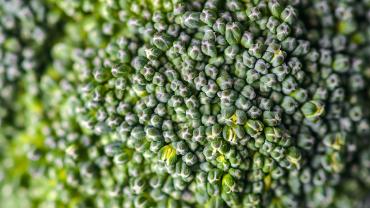
Researchers are working around the clock to investigate potential methods that may support immune health and help lower mortality risk from viral infections, including COVID-19. The global pandemic has tremendously impacted the psychological well-being of many individuals.
Research has shown that micronutrient status and antioxidant status are both contributing factors to the immunomodulatory abilities of the body, to the prevalence of infection, and to mortality rates. Previous articles discuss the roles of vitamin D, zinc, quercetin, and selenium statuses with the infection of the novel respiratory virus. Suboptimal levels of some nutrients may increase the progression of the infection. Research has also demonstrated that vitamins C, A, and E, along with dietary fiber and maintenance of a healthy gut microbiome may help support healthy inflammatory and immune responses. However, it is important to note that micronutrient status is not the only factor in play. The presence of other pre-existing comorbidities, such as cardiometabolic and respiratory diseases, are considered a strong predictor of mortality in COVID-19 cases.
According to a recent clinical trial that is awaiting peer review, low serum vitamin K2 status may predict mortality in COVID-19–infected patients. Vitamin K is an essential fat-soluble vitamin with a variety of critical biological functions. Vitamin K1 is critical for proper blood clotting. Vitamin K1 is found abundantly in the diet from leafy greens, whereas vitamin K2 has a completely different physiological function. Vitamin K2 is responsible for activating proteins that direct calcium to their proper destination. Osteocalcin (the marker for osteoblast activity) and the matrix Gla protein, which is the strongest inhibitor of tissue calcification, must be carboxylated by vitamin K2 to be physiologically active. Unfortunately, vitamin K2 is relatively low in the modern American diet, as this key nutrient is found in the fatty cuts of grass-fed, grass-finished animal products and some bacterially fermented plant foods.
Plasma dephosphorylated–uncarboxylated matrix Gla protein (dp–ucMGP) was measured in a cohort of 138 patients with COVID-19 infections and in 140 controls, reflecting the functional vitamin K status in peripheral tissues. Higher dp–ucMGP levels reflect low vitamin K2 status. Within 90 days of admission, 43 COVID-19–infected patients died. The investigators found significantly different levels of dp–ucMGP between non-survivors and survivors, and levels were significantly higher in patients compared to the controls. According to the regression survival analysis, increased dp–ucMGP levels were associated with higher mortality risk, along with other factors, including advanced age, cardiovascular disease, and hypertension. This has led researchers to suggest that vitamin K2 may have a potential role in the pathogenesis of COVID-19 infections. Keep in mind that this new medical research still has to be evaluated by peer reviews, and therefore, it should not be used to guide clinical practice just yet.
This evidence demonstrates the importance of sustaining optimal micronutrient status by maintaining a healthy diet rich in antioxidants, vitamins, and trace minerals via supplementation, and by reducing oxidative stress. Larger, ongoing human clinical trials are needed to better understand and more fully elucidate the potential impact that micronutrient status and/or supplementation has on the pathogenesis of COVID-19 infections.
By Caitlin Higgins, MS, CNS, LDN